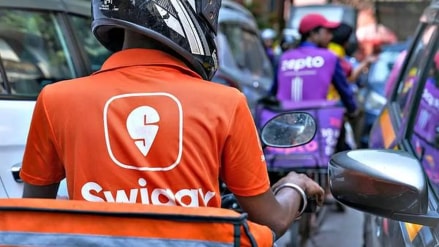The rise of private labels in the instant food delivery industry seems inevitable, mirroring their success in online retail and quick commerce. According to industry leaders, private labels provide a lucrative opportunity for platforms to improve profitability, differentiate themselves with exclusive products and ensure consistent quality.
Private labels have already made inroads in online grocery and quick commerce. Zepto’s meat brand, Relish, is aiming for `1,000 crore in revenue by 2026. Similarly, its Daily Good brand focuses on kitchen and household staples. Tata-owned BigBasket continues to grow its private label offerings, Fresho and BB Royal. Swiggy’s Instamart has also introduced brands like Supreme Harvest and Truly Good Food, contributing to its competitive edge.
Experts believe these successes can translate to instant food delivery, with platforms like Zepto Cafe, Blinkit’s Bistro and Swiggy’s Snacc leading the way. Vikram Gupta, founder and managing partner of IvyCap Ventures, noted that private labels help platforms increase margins and reduce dependency on external suppliers. “As platforms understand demand patterns and volumes, they will invest in private labels to strengthen their market position,” Gupta said.
Zepto Cafe, launched in December 2024, has demonstrated the potential of private labels in instant food delivery. Within a month, it grew from 30,000 to over 50,000 daily orders — a 60% month-on-month rise. Analysts attribute this success to the access to extensive consumer data, enabling them to identify gaps, analyse purchasing patterns and create targeted offerings.
However, the private label trend has drawn criticism from restaurant associations. The National Restaurant Association of India (NRAI) has raised concerns over food delivery aggregators like Swiggy and Zomato venturing into private labels, which involve third-party kitchens and divert customers from restaurants.
While Zepto’s cloud kitchen format supports private labels, some experts argue that platforms like Swiggy and Zomato, which rely on partnerships with restaurants, may face challenges. Dhruv Dhanraj Bahl, founder and managing partner of Eternal Capital, highlighted that such ventures risk diluting the aggregators’ brand propositions and alienating their restaurant partners.
Bahl also questioned the long-term appeal of generic branded quick snacks. He pointed out that customers may resist paying premium prices for pre-made, reheated food, and the 10-minute delivery model could limit the variety of offerings.
Despite these challenges, most experts agree that private labels hold significant promise for the instant food delivery sector. If executed responsibly, they can boost profitability and expand the platforms’ market reach. According to a report by TechSci Research, India’s private label food and beverage market is projected to grow from $12.5 billion in 2024 to $18 billion by 2030, at a compound annual growth rate of 6.3%.
